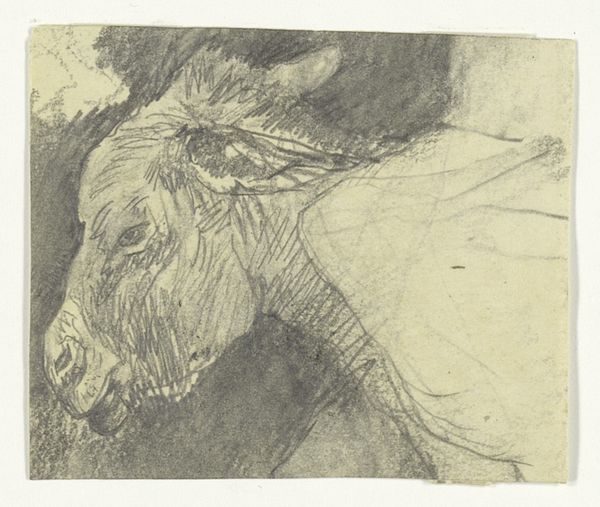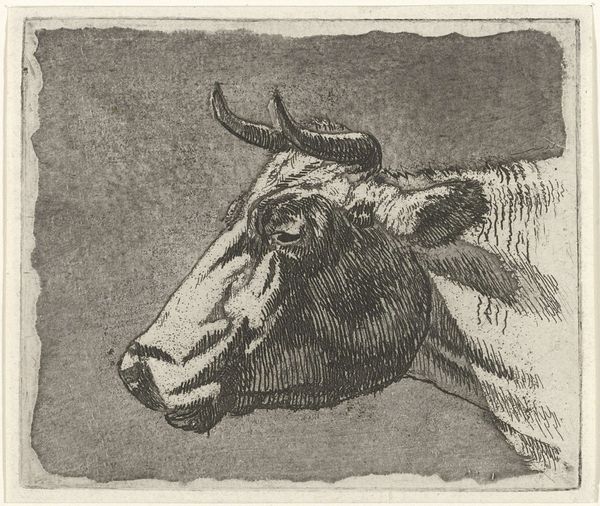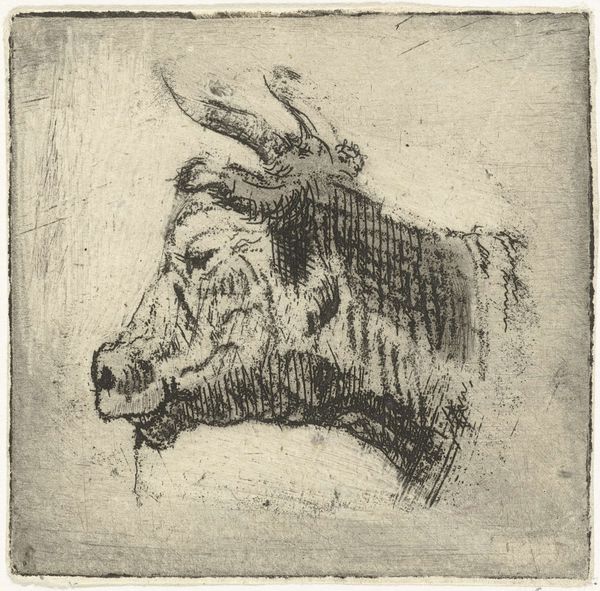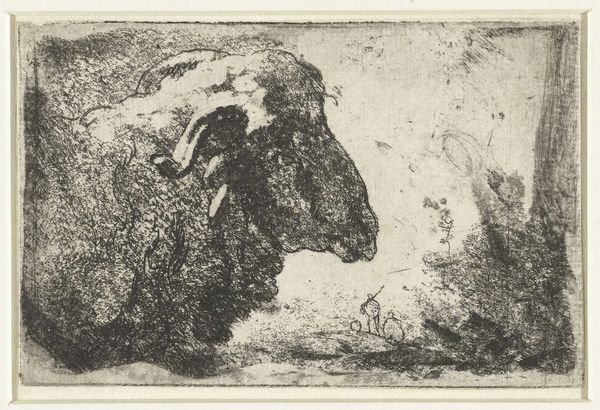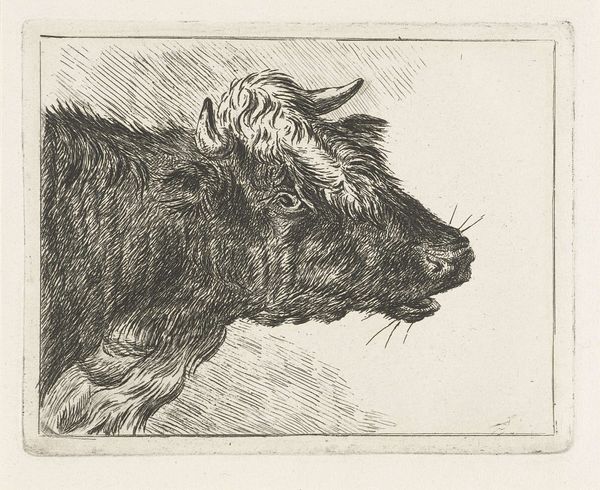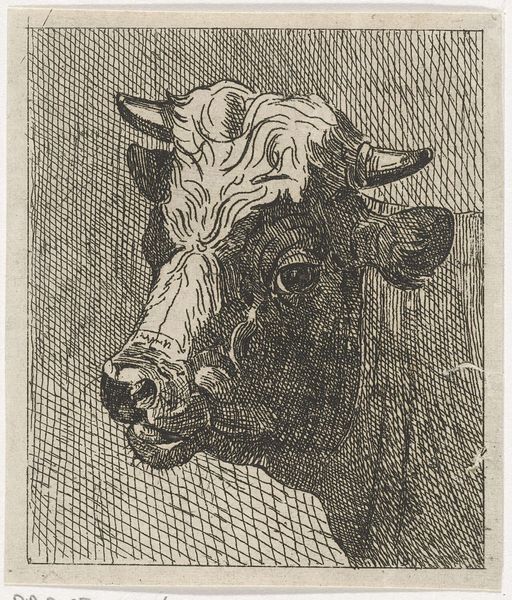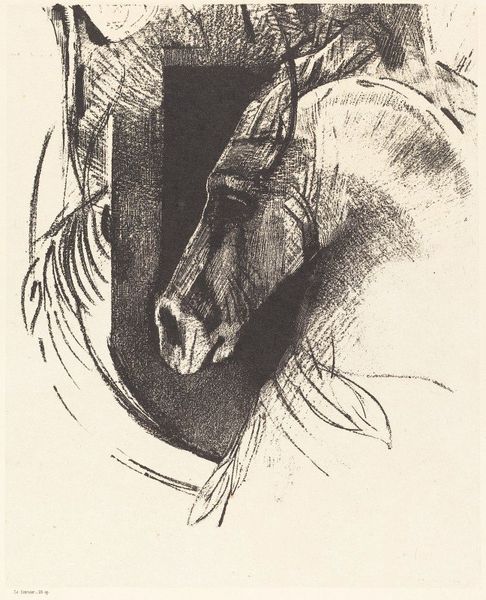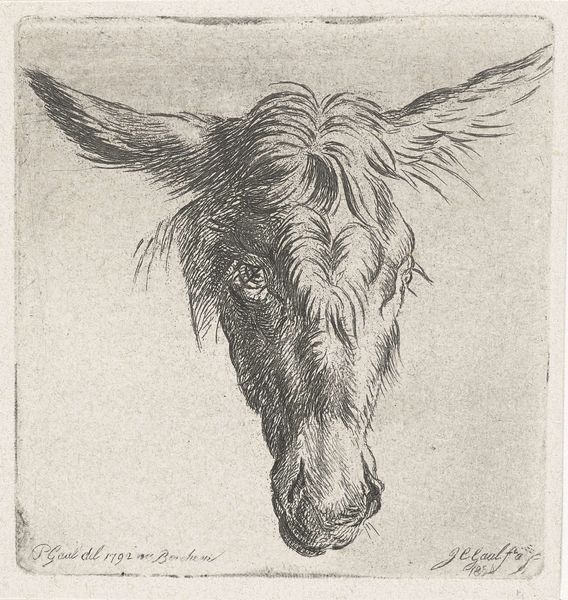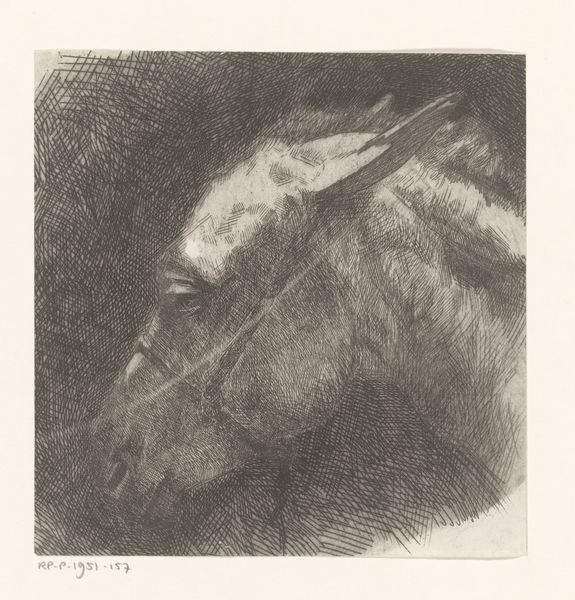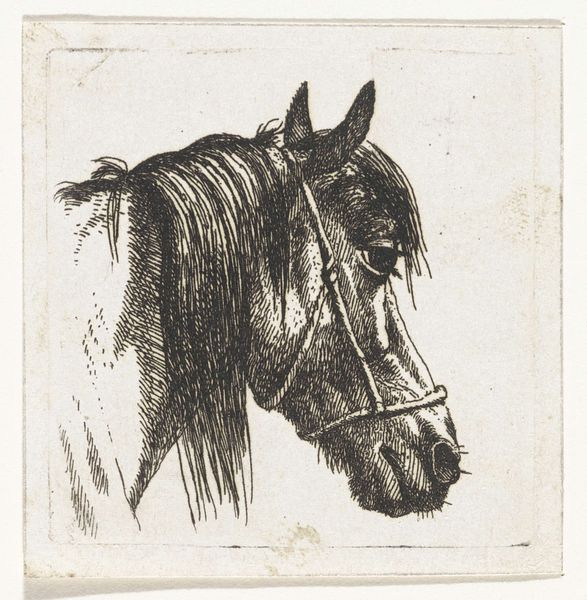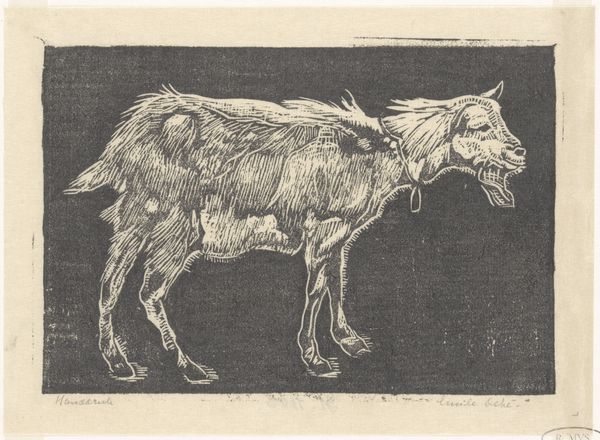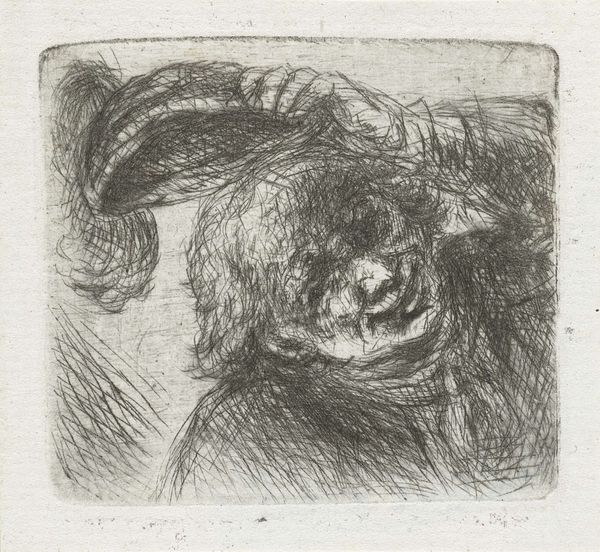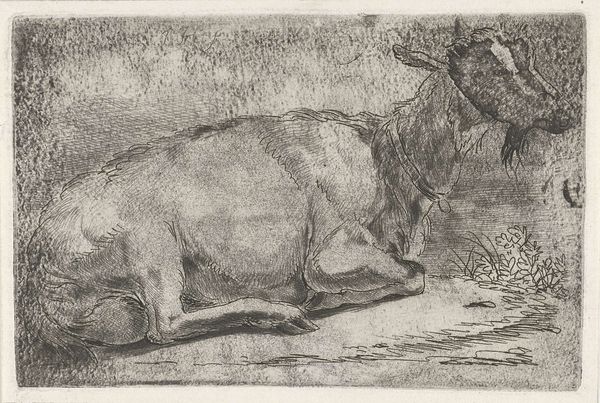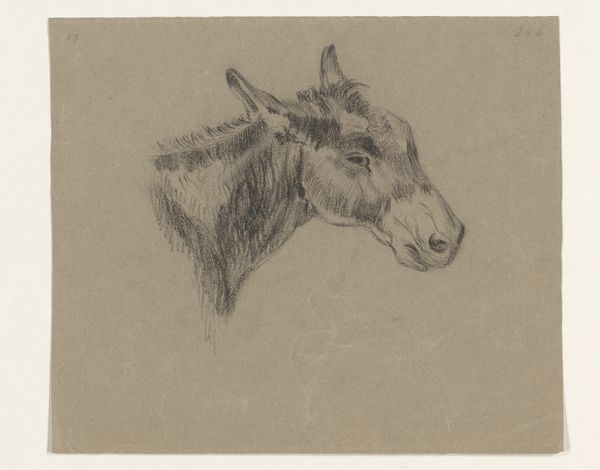
#
toned paper
#
pencil sketch
#
possibly oil pastel
#
fluid art
#
carved into stone
#
horse
#
carved
#
watercolour illustration
#
natural texture
#
mixed medium
#
watercolor
Dimensions: height 79 mm, width 98 mm
Copyright: Rijks Museum: Open Domain
Editor: Here we have "Paardenhoofden," or "Horse Heads," created by Arnoud Schaepkens, dating sometime between 1831 and 1904. The piece looks like a pencil sketch, maybe with watercolor, on toned paper. The mood is somber, almost melancholic, created by these dense, dark lines forming the horses' heads. What stands out to you? Curator: I immediately look to the materiality and production. It seems to have an 'etched' effect, not pencil. It's crucial to consider the etching process itself. The physical labor, the acid, the plate… each step imprints its own mark on the final image and this, perhaps, explains that somber tone you noticed. Do you think that knowing it may have been an etching alters your understanding of it? Editor: It does make me reconsider the detail. What seems like casual sketching now reads like something more deliberate, painstaking even. Etching requires more planning than a simple sketch, right? Curator: Precisely! And in that planning, in the very act of controlled mark-making, we find a reflection of the social context of artistic production at the time. Was Schaepkens experimenting with techniques available to him? Was he emulating more commercially viable engravings for reproduction, and therefore dissemination to a wider audience? Consider also the availability of the paper, the inks... were these readily accessible or did they represent some kind of privilege? These factors inform the artwork as much as the subject matter. Editor: That's a good point. I had focused only on the image itself and the emotional effect. It's fascinating to think about the whole production, the how of it. Curator: Indeed! By examining the physical creation of “Paardenhoofden”, the artist’s labour, and the resources used, we reveal a whole other level of interpretation. Editor: I'll definitely look at art differently now, thinking not just about the what but the how. Thanks! Curator: My pleasure. The 'how' is always revealing, I assure you!
Comments
No comments
Be the first to comment and join the conversation on the ultimate creative platform.
